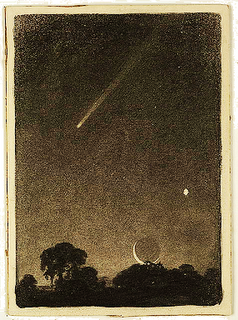When reading this poem I was overcome with a sense of a depressing tone and mood. The poem is composed of questions, which "afraid so" can be the answers to them all. The questions remind me of questions everyone asks, and knows the answers to, but still asks them anyway, hoping for a different answer than what they already know.
In that sense, it's almost like setting yourself up for dissapointment when you find out the real answer you knew all along. But the feeling of hope drives you to ask for something better. I've found myself in this position a lot lately. Always asking the questions you already know the answers to and getting different answers, but knowing the truth. I guess I'm not making much sense here, so I'll stop rambling.
Even though the poem had a depressing undertone, I really liked it. I've never seen a poem written entirely in questions and it was interesting to see something new.
Thursday, November 30, 2006
Thursday, November 09, 2006
"Swear It" by Marge Piercy
This poem is about the power words have on people, specifically swearing. I have to admit that I sometimes talk very colorfully. It's what I grew up with, my mom's side of the family swore a lot more than my father's side, but they had their moments, too. My situation is similar to the poets, she said her mothers side of the family was much more verbal than her father's side.
It made me think of how different language is now compared to what it was before. Before, you would get death-stares if you said a swear on the street during conversation with a friend, now everyone just minds their own business and doesn't say anything about it because everyone does it. This even applies to certain topics, like sex. In the 50's sex was taught as more as an anatomy thing and the way they taught kids how to not get pregnant was just through abstinence. Now, they teach kids more about the dangers of sex, protected and unprotected.
There are still some topics and words that are taboo or have become more offensive than before. For example Fag, Spic and Nigger. I would never, ever use those words because I believe that they are extremely disrespectful. But it seems as though even though people say they wont use those words, they still think prejudicially. It brings up the topic of solving and stopping prejudice actions, and the solution is, even if you don't say the words, thinking prejudicially is just as bad as saying the word.
It made me think of how different language is now compared to what it was before. Before, you would get death-stares if you said a swear on the street during conversation with a friend, now everyone just minds their own business and doesn't say anything about it because everyone does it. This even applies to certain topics, like sex. In the 50's sex was taught as more as an anatomy thing and the way they taught kids how to not get pregnant was just through abstinence. Now, they teach kids more about the dangers of sex, protected and unprotected.
There are still some topics and words that are taboo or have become more offensive than before. For example Fag, Spic and Nigger. I would never, ever use those words because I believe that they are extremely disrespectful. But it seems as though even though people say they wont use those words, they still think prejudicially. It brings up the topic of solving and stopping prejudice actions, and the solution is, even if you don't say the words, thinking prejudicially is just as bad as saying the word.
Thursday, November 02, 2006
"Halley's Comet" by Stanley Kunitz

This poem sparked a lot of emotion in me, it reminded me of whenever my dad would wake me up in the middle of the night to see shooting/falling stars and meteor showers. He knew I was into astronomy (I never studied the constellations or anything, but I always wanted to go into space), so he knew i would like to see those things. Sometimes it was a failed attempt, because you couldn't see too well with the lights from the streets and downtown reflecting on the sky.
When reading this poem, I put myself into the boy's shoes and tired to see how his life was. Figuring the author saw this in 1910, the world was a very different place. But the poem seemed to connect two different worlds and time periods together. I could imagine sneaking up on my rooftop to look at the stars and sometimes, a comet, at night. it's a very relaxing thing to do.
Even though the poem stressed the boy thinking the world was going to end, and he was hearing people on the street corner, telling him to repent to God because if he doesn't he will die and never go to heaven. Thats a pretty scary thing for a 6-7 year old to go through, especially when they don't know a lot. But the young boy seemed to take this almost as a challenge, he went up to the roof, out of curiousness, excitement or anxiousness who knows, but just because he went up there to look up and watch the comet is almost like him saying "I'm not afraid."
Subscribe to:
Comments (Atom)